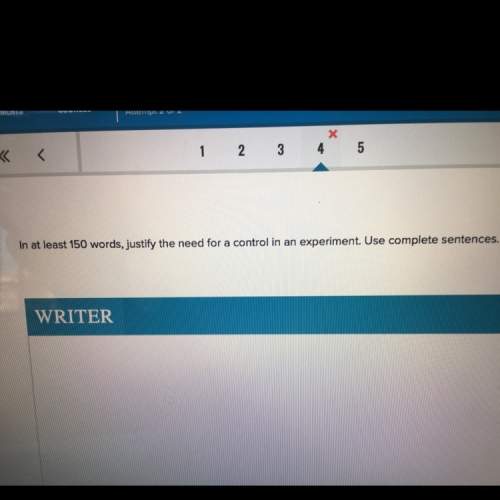Read the following chemical equation.
Cl2 (g) + K+ Br− → K+ Cl− + Br2 (g)
What most lik...

Chemistry, 16.11.2020 19:30 freebyyy7032
Read the following chemical equation.
Cl2 (g) + K+ Br− → K+ Cl− + Br2 (g)
What most likely happens during this reaction?
Potassium loses an electron.
Potassium gains an electron.
Bromine loses an electron.
Bromine gains an electron.

Answers: 1


Another question on Chemistry

Chemistry, 22.06.2019 04:30
How many moles of air are there in a human lung with a volume of 2.4 l at stp? explain your answer
Answers: 1


Chemistry, 22.06.2019 16:00
Which process transfers heat from inside earth to its surface? convection currents in mantle pulling away of tectonic plates drawing in of tectonic plates convection currents in crust
Answers: 1

Chemistry, 22.06.2019 20:00
Iam hoping to create 5.72 grams of glucose. the plant was given 4.75 liters of co2 and 2.81 g of h20. which reactant was the limiting reagent? how much excess mass did we have of the other reactant?
Answers: 1
You know the right answer?
Questions


English, 29.09.2019 08:50




Chemistry, 29.09.2019 08:50




Computers and Technology, 29.09.2019 08:50





Mathematics, 29.09.2019 08:50

Biology, 29.09.2019 08:50


Chemistry, 29.09.2019 08:50





